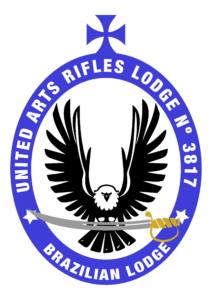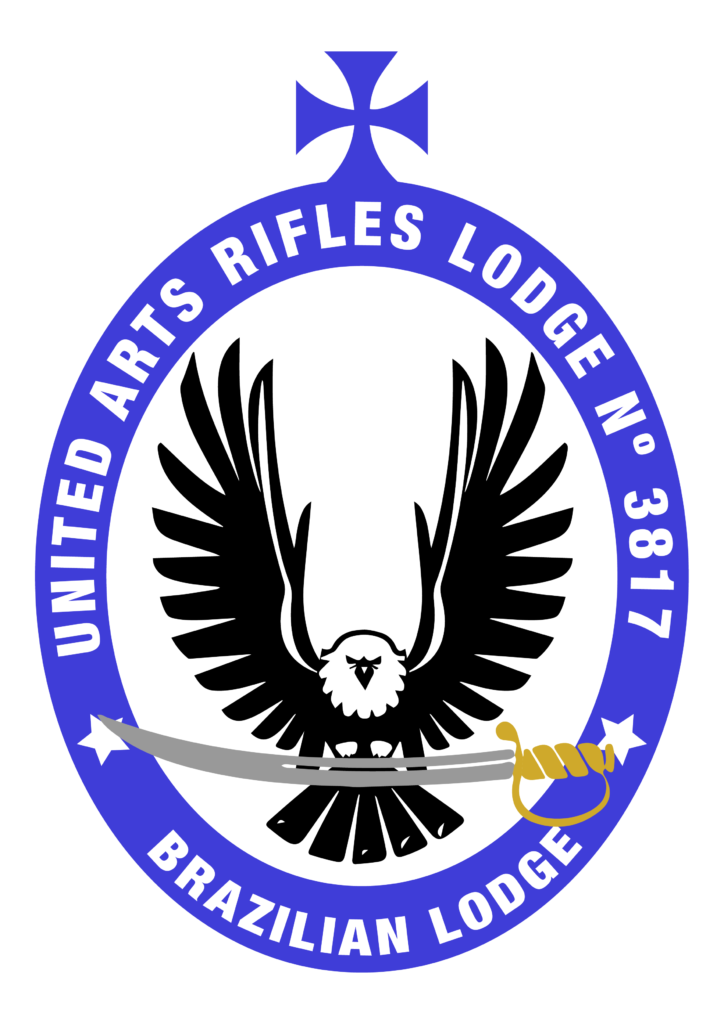Freemasonry is a social organisation concerned with promoting friendship and happiness together with the physical, moral and spiritual well-being of its members, their families and all other members of society in the UK and worldwide.
Unlike other mutual organisations which are often geared towards the social and financial security needs of their members, Freemasonry is a society of men from all faiths and backgrounds who unite around aiming to improve their approach to life. Freemasons understand the importance of free will choices in life and so there are few prescribed levels of moral attainment to qualify to join us - the key is to share the same direction of travel towards improvement.
Freemasons believe that the worth of a man should be measured by his deeds, character and by his love of others, not by his wealth or possessions. Religious and political discussion is not allowed within a Lodge while it is conducting official business but many Freemasons are separately interested in current affairs, political and religious pursuits and the benefits they can be made to bring to all members of society.
Our governing body dates its origins to 1717 and so we are steeped in tradition and traditional modes. These modes have a timeless quality which makes them just as applicable now as previously. The degrees of “Craft” Freemasonry refer back to the three grades of medieval craft guilds, those of Apprentice, Fellowcraft and Master Mason. These are the degrees still offered by our Lodge.
Despite all this, being a Freemason has a variety of meanings and values to its members.
The formal part of a meeting happens in two parts. The first deals with normal administration matters including minutes of the last meeting, discussing and voting on prepared annual accounts, dealing with matters relating to new and existing membership, discussing charity matters and dealing with any other matters arising. The second part of meetings is more ceremonial in nature and this part deals with installation of the Master of the Lodge and his officers and progression points for new and existing members. The content of the ceremonial parts of our meetings are widely published and available for anyone to read.
Unlike other mutual organisations which are often geared towards the social and financial security needs of their members, Freemasonry is a society of men from all faiths and backgrounds who unite around aiming to improve their approach to life. Freemasons understand the importance of free will choices in life and so there are few prescribed levels of moral attainment to qualify to join us - the key is to share the same direction of travel towards improvement.
Freemasons believe that the worth of a man should be measured by his deeds, character and by his love of others, not by his wealth or possessions. Religious and political discussion is not allowed within a Lodge while it is conducting official business but many Freemasons are separately interested in current affairs, political and religious pursuits and the benefits they can be made to bring to all members of society.
Our governing body dates its origins to 1717 and so we are steeped in tradition and traditional modes. These modes have a timeless quality which makes them just as applicable now as previously. The degrees of “Craft” Freemasonry refer back to the three grades of medieval craft guilds, those of Apprentice, Fellowcraft and Master Mason. These are the degrees still offered by our Lodge.
Despite all this, being a Freemason has a variety of meanings and values to its members.
New members make standard solemn promises to fellow members which are basically good behaviours listed into a single statement. Members promise to keep confidential a few traditional ways to prove membership to another Freemason, say, when visiting another Lodge. We also promise to support others in time of need providing this does not conflict with family needs and public obligations.
Unlike other mutual organisations which are often geared towards the social and financial security needs of their members, Freemasonry is a society of men from all faiths and backgrounds who unite around aiming to improve their approach to life. Freemasons understand the importance of free will choices in life and so there are few prescribed levels of moral attainment to qualify to join us - the key is to share the same direction of travel towards improvement.
Freemasons believe that the worth of a man should be measured by his deeds, character and by his love of others, not by his wealth or possessions. Religious and political discussion is not allowed within a Lodge while it is conducting official business but many Freemasons are separately interested in current affairs, political and religious pursuits and the benefits they can be made to bring to all members of society.
Our governing body dates its origins to 1717 and so we are steeped in tradition and traditional modes. These modes have a timeless quality which makes them just as applicable now as previously. The degrees of “Craft” Freemasonry refer back to the three grades of medieval craft guilds, those of Apprentice, Fellowcraft and Master Mason. These are the degrees still offered by our Lodge.
Despite all this, being a Freemason has a variety of meanings and values to its members.
The short answer is hardly at all do Freemasons give preference to other Freemasons for their business or private needs. Freemasonry does not exist to meet the business networking needs of its members - other organisations exist for that purpose. Promoting commercial activity or professional services inside Freemasonry is discouraged and every prospective Freemason is formally advised of this before deciding to join. With approximately 400,000 Freemasons in the UK and Ireland, instances of poor behaviour and malpractice are inevitable from time to time but these are not acceptable to anyone true to the principles of Freemasonry.
Freemasonry is not a secret society but like many other associations, most of our formal meetings are private. These days, many Freemasons’ Lodges publicise the location and dates of their formal and informal meetings.
Although the ceremonial side of Freemasonry does make occasional reference to the existence of a single deity and the principles of Freemasonry are very much in line with nearly all religious teachings, Freemasonry is not in any way a religion. Members belong to a wide range of churches and religions and in some instances hold a belief in a supreme being without being a subscribed member of any organised religion.
Freemasons personality types and occupational backgrounds are as varied as you will find in society at large. There are two things all Freemasons have in common; a belief in a supreme being and an expressed desire to become more moral and ethical in their approach to life. On a lighter note, all Freemasons very much enjoy just gathering together socially.
In the formal part of regular meetings, Freemasons are shown and reminded of moral lessons through a small number of ritual dramas which represent progression points towards a raised level of moral maturity. Away from Lodge meetings, some Freemasons are quite active in national and local charities while others regard charity as being more about all round caring behaviour and the propagation of it.
None of the secrets of Freemasonry are of any real value, commercial or otherwise. The secrets are the methods by which Freemasons may recognise each other and hark back to the earliest days of trade secrets. Today, Freemasons keep only a few words and signs of recognition secret merely as a reminder of the deeply rooted traditions of Freemasonry. For a very fair flavour of becoming a Freemason, watch an informative interview with Rick Wakeman (below) in which he talks about his father, how he joined and what Freemasonry means to him.
Brotherly Love: You are encouraged to extend the same level of care for other members of society as you do for yourself.
Relief: To place a high value on offering a helping hand to others in need after your own needs have been met.
Truth: To strive for high moral standards, both in public and private and to seek truth in all things.
Every year, Freemasons raise and distribute large amounts of money to a diverse range of charities, both Masonic and Non-Masonic. Many Freemasons are also active in giving time and labour to a wide range of charitable causes.
Thinking and acting charitably is encouraged but no one is pressured into doing so. We recognise that a kind word or deed is often far more relevant and valuable than a cash donation.
Click on the useful links available in the footer of this page (below) and you will be taken to the web sites for the main Masonic charities where you can obtain a much deeper impression of their work.
In our ceremonies, we are exposed to moral lessons and developing self-knowledge through a series of low key ritual moral dramas. These follow traditional forms, using stonemasons’ customs and tools as a framework.
If you are wondering, “How can I become a London Freemason?”, you have have come to a good place to find out. Joining a Lodge in London is more straight forward than you may have thought.
To become a Freemason you will need to be:
a man aged 21 or over;
of good character and believe in a Supreme Being - membership is open to men of all faiths.
Freemasonry offers large rewards to anyone who actively joins in. The rewards are educational and spiritual, rather than financial and you should not expect any financial gain from your membership. For most members, Freemasonry is a journey of development and self-fulfilment.
If you contact us via our contact page, we will get back to you within a day or two and aim to hold an initial chat followed possibly by agreeing to meet at a place and time convenient to you. Our aim will be light hearted but to thoroughly answer any questions you want covered. Assuming our first meeting goes well, another meeting or two will follow including at least one of our informal functions so you can get a broader view of our membership and hopefully pick up on the points in common which our members value about their membership. Finally, only after you and the Lodge are completely happy, you will invited to a Lodge committee meeting after which we hope your application to join the Lodge will be recommended to all our members. From initial enquiry to joining the Lodge as a member takes 6-9 months so there is plenty of time to properly get to know us and how we operate.
None at all. In fact, the mix and range of people you will find within Freemasonry is quite a lot broader than in almost all other associations. This is one of the distinctive features of Freemasonry which members value. The single most important qualification to join and enjoy Freemasonry is a desire from within to be of service to others.
Every lodge chooses how lavish or otherwise they wish to be when dining and this is the most significant contributor to the cost of membership. Annual Lodge dues with us are about £290 which includes the cost of dining four times per year at a venue close to Freemasons’ Hall. There is also a small fee to join the Lodge.
If you are interested in obtaining a personal view of Freemasonry, think about watching this informative two part video interview with Rick Wakeman by Lewis Masonic. Rick talks about his family, his masonic membership and what Freemasonry means to him. If this is enough to whet your appetite to want to know how to join London Freemasonry, click the red button below and take things a stage further. We will be really happy to help answer any more questions you may have.

